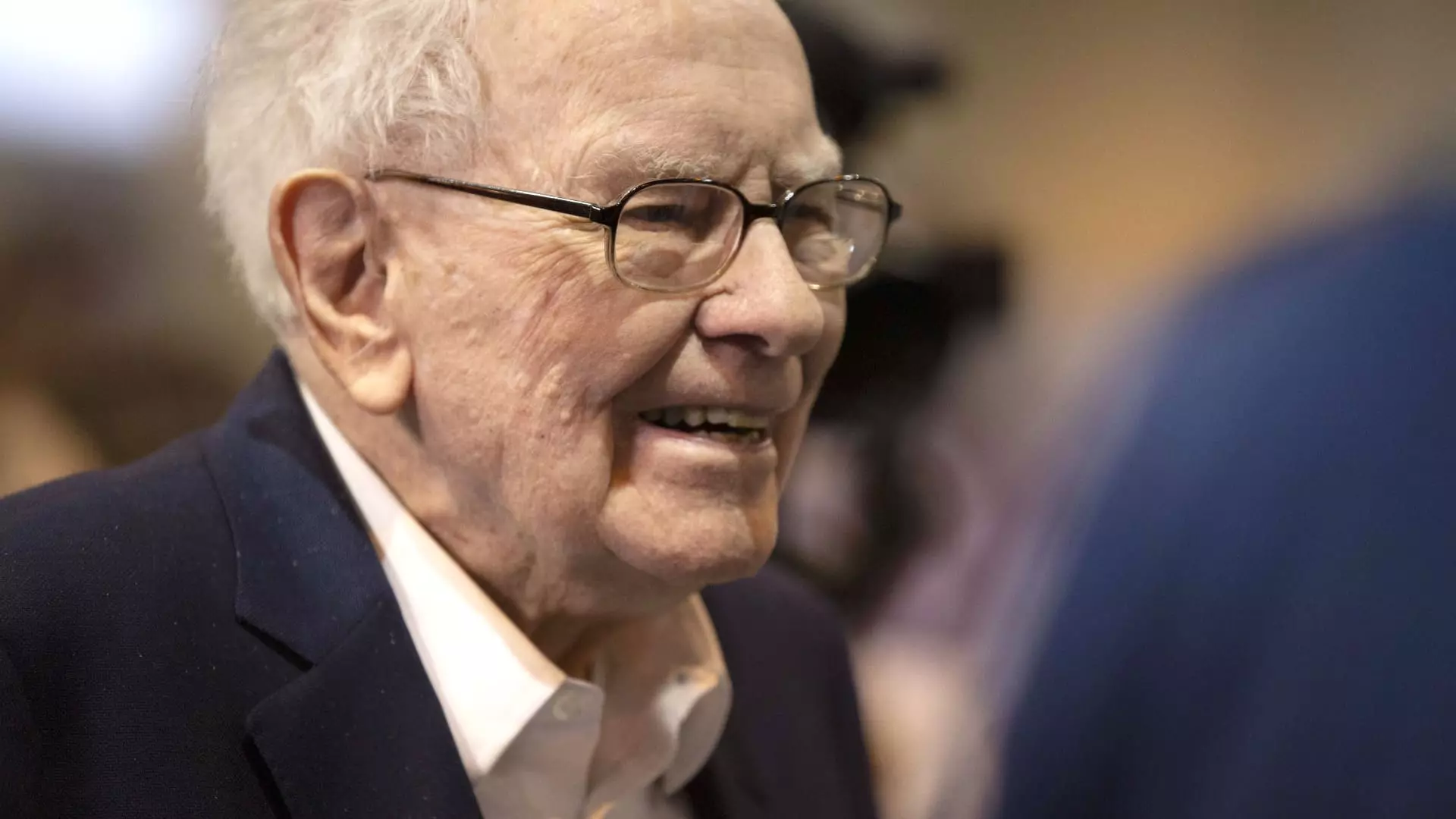In recent years, Warren Buffett’s approach to investing has become a puzzle for many investors, particularly after the latest release of his annual letter to Berkshire Hathaway shareholders. The 94-year-old investment mogul, who has historically been celebrated for his keen eye for stock selection, appears to be taking a notably defensive posture. As he has sold substantial amounts of stock while simultaneously amassing a record cash reserve that has grown to an astonishing $334 billion, the question arises: is this a signal of market caution or merely a strategic pause?
Buffett’s investment philosophy has long been grounded in the belief that the best long-term returns come from owning solid businesses rather than holding cash. This principle has allowed Berkshire Hathaway to flourish, making significant bets on American companies and enhancing shareholder wealth over the decades. The recent shift, however, in which Buffett sold off more than $134 billion of equities in 2024 alone—largely because of a considerable reduction in his stakes in tech giants like Apple and finance powerhouse Bank of America—has raised eyebrows. This strategy poses stark questions about whether Buffett is anticipating a downturn or simply waiting for a more attractive investment landscape.
In his much-anticipated letter, Buffett assured his shareholders that their capital would continue to be largely invested in equities. “The great majority of your money remains in equities,” he asserted, yet the reality seems increasingly contradictory. If equities are still the favored avenue of investment, then why has the cash reserve swollen to unprecedented levels?
Buffett’s growing cash hoard may be attributed to several complex factors. Primarily, his long-standing discomfort with high market valuations and the current economic climate must be considered. While interest rates have historically been low, climbing significantly in recent years, this environment has curtailed the number of appealing investment opportunities. In his letter, Buffett candidly expressed his frustrations about overvalued markets offering limited choices for savvy investments. His lack of activity in Berkshire’s stock buybacks during the last quarter of the year and early this year, despite substantial operational earnings, further magnifies this sentiment.
Buffett’s approach touches on a more significant yet subtle trend—market volatility. The turbulent backdrop created by rapid shifts in policies, economic unpredictability, and a general skepticism about valuations can often undermine confidence in ongoing equity investments. Some observers speculate that Buffett, who is not just a renowned investor but a market commentator, senses that external pressures are creating a potentially treacherous environment.
Adding a layer to the ongoing speculation about Buffett’s strategic mindset is his designation of Greg Abel as the company’s prospective successor. This announcement was pivotal at last year’s annual meeting, evoking discussions about the future leadership of Berkshire Hathaway. Many analysts suggest that Buffett’s recent actions may not solely reflect the current market environment. Instead, they could be indicative of a systematic reshaping of the company’s portfolio in preparation for a leadership transition to Abel.
Buffett’s praise of Abel’s investment acumen—as evident in his comparison to the late Charlie Munger—suggests a forward-looking view. He hinted at a disciplined approach in curating portfolios that emphasize strategic growth areas, such as the Japanese trading houses that Buffett has been accumulating over the years. This growth could signal an intent to bolster his successor’s options for deploying capital effectively.
Despite Berkshire’s defensive maneuvers and Buffett’s cautious language, there remains a concern among investors regarding the sustainability of this approach. The stark contrast between Buffett’s historical equity-heavy strategies and his current inclination to hold cash invokes thoughts about investor sentiment. Are investors truly aligned with Buffett’s vision? Or is apprehension about an impending market correction prompting a more conservative stance than his usual playbook?
Buffett’s affirmation of sticking with a substantial equity allocation can be interpreted as reassurance to shareholders weary of upward trends in cash positions. He aims to instill confidence that Berkshire will maintain its focus on businesses instead of ultimately succumbing to the comfortable cycle of holding cash equivalents.
Warren Buffett’s latest maneuvers reveal a complex tapestry of investment strategy woven together by market conditions, future leadership considerations, and his enduring commitment to equities. While uncertainty lingers, what remains clear is that Buffett’s legendary investment philosophy continues to evolve, leaving both shareholders and market watchers eagerly awaiting the next chapter.


Leave a Reply